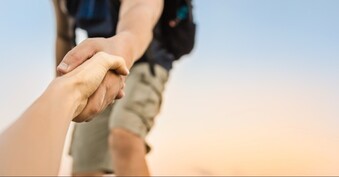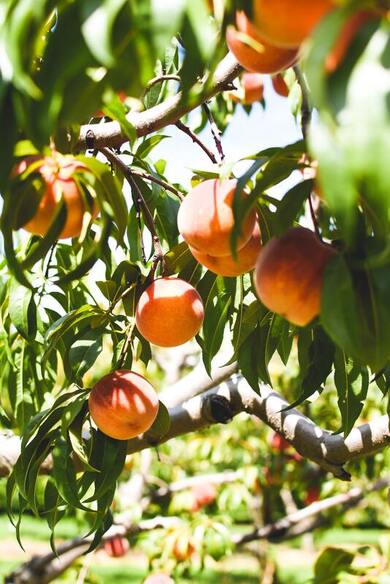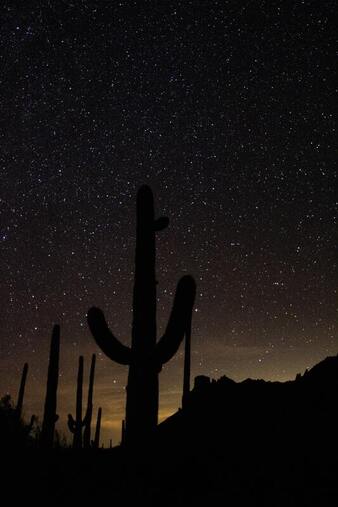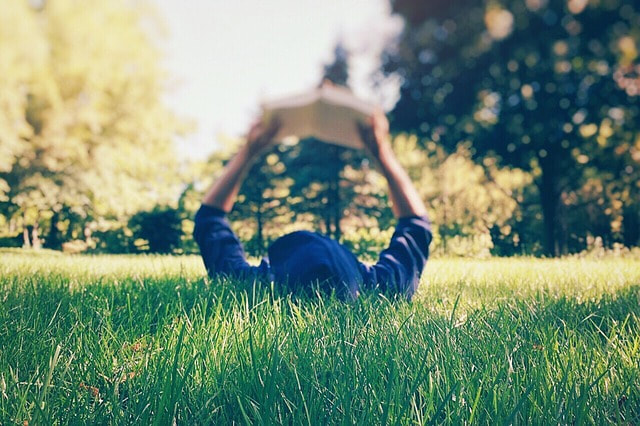 Can you hear it? The creaky hinges, the mysterious voice, the lone coyote in the distance… an eerie wind that almost sounds like music? Spooky season is upon us! And there’s a reason we love it so. Personally, I’m a Libra, so I was born under this here moon. Libras (and Scorpios) are extra about Halloween, ask anyone who has to live with us and our rigorous observance of the season. (What do you mean it’s not a Halloween party? If it’s a party and it’s in October, it’s a Halloween party! No, costumes are not optional). But we aren’t the only ones. Lots of folks love this time of year, and not just because it’s the gateway to the ‘other’ holiday season. There’s more to it than that. We actually want to be spooked. For one thing, a fictional horror story is far preferable to the horrors of the actual real world, especially these days as the real-life horrors seem to be escalating. And while I’m never one to condone escaping the real world to avoid dealing with human suffering, fiction serves us at a spiritual and deeply human level as we are dealing with the real-world awfulness. Fiction of the fantastical variety keeps us open to the possibilities of life beyond what we can see or understand. It keeps our imaginations engaged and our problem solving skills sharp. Spooky stories keep our love of mystery alive as well. That helps us cope with anything. To be clear, I’m not talking about the slasher films with their gratuitous violence and the kids that will always go in there when you are screaming DON’T GO IN THERE! Love those if you want, just not my scene. But if it’s ghosty, witchy, or only comes out at night? I’m in. That house with a dark history that seems to have a life of its own? It probably does. And I’m here for it. If you are too, here are some things to watch, read, and listen to when you are ready to get your spook on. Late to the party by a year or so, I’m finally reading Stephen King’s Fairy Tale. I’m only about 100 pages in, but so far this is one of his better post-Dark Tower ventures. Complete with a creepy old house, a mysterious old man, and things that go bump in the night. Or even in the daytime… Next on my reading list is the newly released Starling House. Appalachian gothic vibes, set in a dying coal town in Kentucky; and written by Kentucky author, Alix Harrow. Say no more. And, if you are just meeting Harrow for the first time, also check out The Once and Future Witches. As for the watchlist: Netflix releases The Fall of the House of Usher later this week and it looks like a compelling re-telling of the Poe classic, brought into the present day with some familiar faces. If it weren’t for all the October birthdays happening in my house, I’d plan to make a weekend of it, but alas… let me know how it is. I might get to watch it before Thanksgiving. Meanwhile, if you haven’t yet, enjoy bingeing all of Dickinson on AppleTV. It’s a gothic, ghosty, genre-bending trip into Emily Dickinson’s life, and it’s incredibly well done. It's an ode to literary queer feminism (or...queer feminist literature?) and if that isn't enough to recommend it: it also features Death as a sexy boyfriend who whisks you away in a haunted midnight carriage and WHAT IS NOT TO LOVE ABOUT THAT? And, why not, let’s check out the new Haunted Mansion from Disney. I mean, it’s got to be better than the last attempt, right? At least, reviews so far say so… As much as we’d love to read and watch our way through the month, most of us have adulting to do in the meantime… so you need a seasonal soundtrack. Enjoy my adults-only Halloween playlist, Something Wicked, for your errands, yard work, or running/walking pleasure. (I do have a kid-friendly playlist. But this is better. Trust me.) Happy haunting, y’all. Whatever else: remember the power of story to transform reality, in any season.
0 Comments
 Matthew 20:1-16 It was going to be a fantastic party. The flowers and decor were coordinated. The caterer was the best in the city. The playlist was on point. The only problem was, there were empty seats. All that planning, all that work and forethought, and several guests were running late. VERY late. The hostess fretted and scrambled and texted “Where are you??” When the stragglers finally came through the door, she said “where have you been??” They said, “it’s just that we only got your invitation just now, when you texted to see why we were late…” So that was awkward. The hostess went to the desk where she had addressed all the invitations and sure enough - there were several still sitting there. The names from the bottom of the guest list. THe ones in the ‘maybe’ pile, pending the RSVPs of others. She had waited to see if there would be room, after the more important or slightly more interesting guests replied - then she forgot them entirely. “Oh, well,” said the hostess. “What matters is that you’re here now.” And then she gave them the best seat at the table. * * * The interns were late to the meeting. It was a big meeting, The Boss was in town. The team had made the good coffee and bought the good donuts. Today was a big deal, with future plans to be shared from corporate, and most importantly - advancement opportunities. Lots of ways for those just starting out to make connections that would lead to future jobs. Where were those interns? They would be crazy to miss this! Someone finally thought to go down to reception and see where the young folks had all ghosted off to. And there they sat, answering phones and greeting guests as usual. When asked why they weren’t rushing up to this momentous gathering happening upstairs they said “nobody told us we were allowed to come! We thought it was for managers only” The team went back through their email thread and then realized that yes, as it happened, everybody thought someone else had extended the invitation. When the whole team came back, finally, to The Big Meeting, the interns got the front seats. And the first donuts. * * * The migrants had waited all day to be chosen for work. Others had been called up first thing in the morning. Now it was almost dark, so it was looking like there would be no work today. As they packed up to go home, a truck pulled up. “Why are you not out working today?” asked the farmer. “Nobody hired us,” they replied. Then the farmer asked: Why not? Well. Nobody had ever thought to ask them that before. But they had answers. “Many reasons,” they said. “Because we are older. Because we are immigrants. Because we are strangers. Because we don’t look like the others. Because of our accents. Because of our clothes. Many reasons.” “Well get in,” said the farmer, “I can use all the help I can get.” The men worked til sundown, which is to say, only about an hour and a half. And at the end of the day, that generous farmer paid the migrants, who had worked only a short time, the same wage as those younger men who had been working since sun up. “That’s not fair!” the others hollered, then hollered some more. “Why should they get the same pay for a fraction of the labor?” “Because,” said the farmer, “I have it to give. And you might say… we’re making up for lost time.” * * * If you want to understand the complexities of economic justice, you could ask a politician; you could look to any number of community organizing groups or activist leaders… or you can read the parables of Jesus. In these stories, he gives us living examples of what the kingdom of heaven looks like in the flesh, in real life and practice. And if his subversive, controversial ideas of what that kingdom should be make us uncomfortable, then know we are not alone - people in his own time didn’t really like it either. On the world’s terms, it’s absurd to pay someone for 2 hours work the same thing you would pay for 8 or 10 hours work. It’s a terrible business model! But truly, sometimes what’s bad for business is what’s good for the neighborhood. What’s bad for the bottom line is good news for the poor, the weary, the left out and forgotten. The last guest on the list, the overlooked intern, the migrant worker waiting to be called to the field. As Richard Rohr says, “Jesus’s ministry is not to gather the so-called good into a private country club and punish the outsiders, but to reach out to those on the edge and on the bottom, those who are last, to tell them they might just be first!” Nobody wants to be last. Not the workers who actually arrived first, and certainly not the people who’ve always had a privileged seat at the table. But the kingdom of heaven is terrible for business, and even worse for those who are used to being the boss of things. It's understandable that the all-day laborers would want more compensation than those that just rolled in midafternoon. Of course they pitch a fit about the unfairness of it all. But nobody seems to ask what caused the others to be late. When the landowner finds the workers at the end of the day and asks why they aren't working, they say, "because no one has hired us." The landowner in this parable has privilege of place and power. And he chooses the way of abundant generosity. He chooses to compensate the late comers for MORE than they are worth on the world’s terms, perhaps to show them their infinite worth in human terms; in kingdom terms. Could it be that he, like no one else in the story, bothered to wonder– why did no one hire them in the first place? Once he started asking that question, once he got interested in the realities of life for his neighbors, he would begin to get to the source of the gap between those who have enough, and those who were forgotten. He would begin to see that he had the means available to close that distance. That it was as simple as giving a living wage to those who had just been waiting for an invitation to work. That is how you build the kingdom of heaven. Once we identify the people at the margins, and ask why they are there rather than continue to exclude them ... then we might be on our way to following Jesus into something new. As it turns out, most often, people are not actually late to the party. They are just the last on the guest list. How about one more parable? God’s people, who called themselves the Church, were doing everything they could to get their neighbors to come gather; to worship, and to keep up the work Jesus started. They did everything. They built big buildings, and they got hipper music; small groups for every interest imaginable, strategic planners and 5-year growth strategies; dazzling websites - Instagram even! But fewer and fewer people were showing up to do the work. Especially the young people! What has happened to the young people?? became their common refrain. Finally, the people of God (the Church-with-a-capital-C) went out to the neighborhood and asked around. They stopped going straight to the people who looked just like them and they ventured to some farther corners - and to the people they found there, asked “Where have you been? Why don’t you come?” And the neighbors, every last one of them said - I was not invited. None of this was for me. “I was gay and you told me I was a sinner.” “I was homeless and you hid me from tourists.” “I was divorced and you withheld communion from me.” “I struggled with addiction and you told me to just pray more.” “I was Black and your people voted for white supremacists. Again, and again.” “I was trans and you made my very existence a crime.” “We were very last on the guest list, and you just forgot to come back for us.” What do you suppose the Church said then? I know how I’d LIKE for this story to end. I’d like to hear the followers of Jesus say: Nobody is going to be late on our watch. Not late to work, not late to the party, and certainly not last at the table. Not ever again. It’s time for us to get interested in where the people are–who has been left out and forgotten– then maybe we can build something like the kingdom of heaven, right here in the neighborhood. And in the kingdom of heaven, the early shall be late - and the late will be right on time.  Following (another) tragic mass shooting in Indiana that killed 3 people and injured more over the weekend, local and national media outlets are hailing the “Good Samaritan” that shot the gunman and prevented more fatalities. This loss of life is tragic, and we can certainly be grateful for an intervention that prevented a higher casualty list. I don’t mean to diminish the significance of this bystander’s role in saving lives; especially not when there have been more than 350 mass shootings in the U.S. so far this year. But sometimes, the casual use of the term “Samaritan” in American media is as problematic as its casual relationship with biblical imagery. Both practices amount to cultural appropriation at best; and at worst, contribute to underlying issues of racism, violence, and imperialism in our broader culture. Here are a few ways that twisting scripture for a grabby headline can be a problem.
I can think of so many better headlines... Perhaps "Young Man Shows Courage in Tragic Situation" would be appropriate; or "350+ U.S. Shootings in 2022: This One Could Have Been Worse." But maybe the most apt title of all would be simply to say: "We Don't Have To Live Like This." How would you change the headline? And how do we flip the script?  Do you want to know what is the most hilarious waste of space in the history of all time? The 2020 day planner that I found sitting in a desk drawer yesterday. I laughed out loud. This was a nice planner, too. I had always used just a #basic paper calendar for scribbling in appointments and notes, but this one– hardback, black leather bound, all kinds of designated pages for writing big goals and great ideas, prompts for writing and reflecting on how you were spending your time. This was going to be THE year that I figured out my vocational life, my home life, my spiritual life AND my social life. Like I said, I laughed out loud when I found it in a drawer. Who knew that 2020 was going to come to a screeching halt after the first quarter and that every aspect of our lives would become one long improv act? I almost scrapped it, just tossed the whole thing in the trash while enjoying my good chuckle. Then I figured I could tear out the pages to use as actual scrap paper. I cringed at first, tearing the first blank page out of that beautiful bound book. I felt that surely some invisible librarian was looking over my shoulder, ready to shout at any moment, “don’t hurt the book! Step away from the beautiful book!” But wasn’t this preferable to the recycle bin? And that is the story of how I found myself with at least a year’s worth of scrap paper. The blank canvas for any number of grocery lists, errand lists, meal plans, and work out schedules. You know, life. Or maybe I can leave a love note on my husband’s drum set. Stick a word of encouragement or a funny joke in my kids’ lunch boxes. Maybe I’ll keep a few pages in my car for scribbling down those sermon thoughts or beginnings of blog posts that come out of the blue sometimes. Maybe that empty book is where I start a new book. The more I think about it, those worthless, wordless pages start to look like infinite possibility. And when you get right down to it–to where the book gets binding–that’s what that whole year was. For all the tragedy, anxiousness, loss, and outrage of that season, we all learned some new ways to be together, some new things to do with our time and spaces, and some new purposes for things that were always right in front of us. We also learned that plans were always an illusion. And so were the planners we kept them in. Tomorrow, next week, next year… the vacation, the new job, the retirement plan, the college fund, the gym membership… who knows? These are all great things to build into our lives but not ON WHICH to build our lives. I’m still learning this every day: the discipline of knowing the difference between what I should care about and what I should let go; what I should work for and build, and what I should just let be. But I recognize there is a certain power in writing something on scrap paper - it can be scrapped. It can be tossed to the wind or recycled; rewritten, reworked, or reimagined. Nothing is certain, nothing set it in stone. And on a good day, I know that is every bit as freeing as it is terrifying. I’ve had trouble finding my words these last couple of years, for a number of reasons I won’t bore you with here. But I know my problem is more about space than it is about time. Finding the right physical space in which to sit and write, and finding the right platform in this time of rapidly changing communication technology… it’s daunting. But there is something about a stockpile of scrap paper that opens up the world. And whether I use it for a grocery list, a lunch box note, or to start the great American novel, I guess that little book–with its endless pages for planning and dreaming and writing the world–is doing its dang job after all.  When I lived in Phoenix, I had a lemon tree in my front yard. And an orange tree in my back yard. So when I wanted to make some orange juice, or some lemonade, or just maybe make the house feel festive with natural decor, I had only to step out my door and pull some low hanging fruit from the branches. Many members of my church had citrus trees in their yard too. So certain times of the year, people would bring bags and baskets of fruit to church and just set it on the ground for people to take whatever they could carry. To this day, I sometimes pick up a lemon in the grocery store and think… really, they want me to pay MONEY for this?? I got used to living where fruit falls right off the tree and into your hand - some fruit, you don’t even have to work for. In this passage from Galatians 5, Paul is talking about a kind of fruit that takes a bit more cultivating than a Phoenix lemon in January. He’s addressing the Christians of Galatia, where some of the teachers in the community have claimed that the law is the vehicle of God’s Spirit. But Paul says, the primary function of the law is to point out transgressions. He cautions the people against placing their ultimate trust in obedience to the law. Law in and of itself is not salvation- the law cannot give life. Only God can do that. To think otherwise is to enter into a kind of bondage, where the law of the land has far more power than it should. Yes, some laws are necessary because humans have sinful natures, and are capable of perpetuating evil; but the law itself cannot be a vehicle of the Spirit. Often, when humans put too much trust in the law, then the law becomes corrupt and no longer about protection… it becomes about power, and is an idol unto itself. Paul talks a lot here about the flesh, with a long litany of fun-sounding sins. (Fornication! Licentiousness!) Well, The Common English Bible translates sins of the “flesh” as simply “selfish motives.” So without getting too much in the weeds about particular transgressions, the bottom line is this: like any bad behavior, laws that are rooted in selfish motives, that seek to manipulate and control, are their own kind of evil. When Jesus was around, he was often concerned that people were prioritizing the letter of the law over human interest or human need. Paul extends that teaching here. Law has its place and purpose, but as a disciple, your first job is to love your neighbor. The Spirit is at work in that new community of faith, transforming the body of believers into a new creation—into people who are more loving, gentle, and kind. That transformation is not confined to particular laws or practices like being circumcised, or adhering to a certain diet…those are some of the ways that the people of God used to identify themselves. And those laws were important at that time. But, Paul says, in the way of Christ, the new law of the land is love; and the best way to honor it is to cultivate fruits of the spirit. By these fruits, they will be recognized as Christians; and others will want to join them, to get more of that good fruit! The early church is learning that they are to be marked by the way of Jesus rather than their own selfish desires or need for power. They are to fulfill, if not the letter of the law, then the intention of the law—which has always about love of neighbors… “For the whole law is fulfilled in one word, ‘You shall love your neighbor as yourself.’” These are people who are called to freedom; not the freedom of self-indulgence, which is without love. But freedom from the weight of laws that only exist to protect the powerful. Can you think of some laws of that nature? Laws that are meant to exert control over a group or class of people? Can you think of cases in which “the letter of the law” is without nuance, and completely without concern for the harm it might cause, the unintended consequences that will play out again and again in the lives of the vulnerable? Not to put too fine a point on things, but… Many of us are thinking today about restrictions on women’s healthcare that don’t take into account a woman’s medical history or circumstances, or risks to her safety and dignity. Laws that force a child into existence but care nothing for that child’s future security or care. Many claim these laws are rooted in love for the unborn baby; but in reality–and in practice, these laws will cause great harm to many vulnerable women, and by extension, children. These laws are going to affect how a doctor can care for a woman in crisis, and among other things, make it harder for a woman to find safety from an abusive partner. If there is no freedom in the law, then there is surely no love there. How about immigration laws that don’t consider that a person might be fleeing from mortal danger in their home country? Laws that separate families without regard for the trauma caused to children, without a plan for bringing those families back together? There is no love in that law. That is not freedom. Then we have laws about guns… We have laws that protect the guns more than the victims, or future victims… In many ways, we are still living with the consequences of some old laws, particularly Jim Crow laws… While the letter of the law no longer stands, the ripples continue to impact lives and communities to this day. Just like our children and our children’s children will be living with consequences of some of our current practices and priorities under the law. There is no freedom in such laws; because there is no love. When folks try to legislate faith into policy, that rarely ends well. We end up living under laws lacking in empathy, that seek only to control or maintain the power of a ruling class. The unintended consequences–or in many cases, the intended consequences– are devastating. We create systems of power that are in no way relational or authentic, and that contribute nothing to the communal good. What matters, Jesus reminded his people, and Paul says again… is that we love our neighbors. That we place the greater human interest before the letter of the law, and let the law emerge from that place of love. If we did that faithfully, our laws would actually enhance community life. We would see fruits like comprehensive, compassionate healthcare for all; access to safe and affordable housing and childcare; fully funded public schools where kids could be free to be kids, without the constant threat of violence. Our borders could offer sanctuary for those fleeing violence, with swift vetting and integration programs, housing and employment services… Guns would be a privilege for those who could wield it wisely, instead of a right for anyone with a lust for power. Women would have less to fear in bringing a child into such a world; and their own welfare would be prioritized for a lifetime. We would have the most pro-life policies imaginable. If we were concerned with loving our neighbors as ourselves, all of our spaces and systems would reflect, not a desire for power or need for control, but evidence of love; joy; peace; patience; kindness; generosity; faithfulness; gentleness; self control. That would be the harvest we could share with our neighbors in every aspect of public life, if we prioritized the cultivating of those gifts above all else. And if we did that… well we wouldn’t need many laws at all. Our job as disciples of Jesus is to make sure we are rooted in the Spirit; cultivating the gifts that reflect God’s presence to those around us, and yielding good fruit that is life giving for all. When I was serving at Saint Andrew in Kansas, we took a group of youth and church folks to rural Missouri each year to spend the day working with the Migrant Farmworkers Assistance Fund. This program connects workers arriving in late summer for harvest season with vital resources and services — assistance with food, clothing, dental care, school registration and more. We filled backpacks with school supplies; prepared boxes and bags of food; sorted toiletries; carried stuff to cars; and learned about the lives of these families who travel great distances to harvest the food that lands on our tables each night. It was good work. It was a good time connecting with and loving some neighbors that we often don’t see at all. As part of preparing the food boxes, some of us were gifted with the task of sorting through the potatoes. As in, finding the rotten ones and removing them from the mix before bagging up the rest. Have you ever opened your pantry and known immediately that there was a rotten potato in there? Imagine that times a thousand. Feeling and smelling our way through these sodden plastic bags was an exercise in grace, and an utter assault to the senses. The awful smell, the slimy feel on your hands, the complete gross-me-out sight of them, once they’ve been extracted from the bag… But we did not want to let whole pounds of potatoes go to waste, just because there was one bad one in the bunch. Nor did we want a family to arrive at home and find one of these languishing in their food box, after working a long hot day in the fields. So we sorted, and we tossed. Then we washed our hands compulsively and dreamed of the shower we’d take when we got home. Later, as we were standing in the parking lot waiting to greet families, one of the farm workers came with a gift for us. The volunteers! Two large bags of freshly picked peaches, straight from the orchard. Perfectly ripe, round, and orange-y pink. A sensory abundance. I held one and inhaled for like a full minute. Let me tell you, that smell can redeem a whole day of bad smells. As I watched happy children skip off with new backpacks and books and school clothes, I thought, there you have it: the life of faith in a snapshot of odors. When you cultivate the fruit of the Spirit, even rotten potato days come with a peach at the end. What do we have to offer our hurting world right now, church? What is God calling us to cultivate, to yield, and to leave on our neighbor’s doorstep in abundant harvest? Do we have rotten potatoes? Or are we going to have ripe, fragrant peaches fresh off the vine? Here is the good news… God has given us everything we need to dwell in goodness and life. Sometimes we have to sow, or dig, or water; but really, it is all low hanging fruit. Ours for the taking, abundance to share.  When I was a kid, my family used to spend Thanksgivings on the farm. The idyllic, iconic American experience. Mamaw would spend days shopping and chopping, and woke before dawn to start the turkey. She always had everyone's favorite pie. Dinner would involve, among other things, three different pans of stuffing: one with everything; one with no onions; one with no giblets. Plus the copious amount of sides including deviled eggs in a giant Tupperware container–because if you don’t have deviled eggs, is it really even Thanksgiving in Kentucky? All of it would somehow fit on the table that also seated 6 adults. (The 4 kids were relegated to a card table in the den, of course). As that turkey roasted to the perfection that only childhood memory can muster, I was outside with my cousins, playing on the tire swing and jumping in hay bales. The barn smelled like tobacco and Novembers were warm. This is not a Norman Rockwell imprint on my psyche. It was actual life. You don’t know when you’re having the last one of those before life happens and people grow up, and everybody gets jobs and car payments and a set of in-laws. But at some point, all those dominoes started falling. Thanksgiving migrated to my aunt’s house in Georgia, and I married into a very large Catholic family where Thanksgiving was less an exercise in finding space for the deviled egg and more a game of Twister to get everyone seated. Then I moved. To Phoenix. We lived in three different places in 7 years there, transient in they way of Gen Xers in general, and Arizona residents specifically. We had good friends from home living in Southern California. When you’re a Kentuckian living in diaspora, the 5-hour plus drive across the desert seems like nothing at all, and so the Cali-Kentucky contingent would come to Phoenix to spend Thanksgiving with us. Those years involved the gradual introduction of babies (ours and theirs) and friends’ husbands, and an ever-expanding table of mostly vegetarian fare. The church I was serving at the time always had a big Thanksgiving meal the Sunday before, which meant turkey with an abundance of jello-dishes and store bought salads because– THIS JUST IN– Arizona people don’t cook like your Kentucky Mamaw. But they have their own virtues. For instance, those were the years I learned to put green chiles in everything. Seriously, corn pudding, cheese grits… whatever, it will change your life. Somehow, even though ministry life means that holidays are the worst possible time to go ‘home,’ that desert was filled with all the goodness of family and belonging that I could ask for. Maybe it’s because there was so much love in the scrappy little church that made a pastor of me. Maybe it’s because my friends and chosen family were willing to drive across the desert just to hold my babies and enjoy pie-for-breakfast-Friday (my favorite, if self-appointed holiday). Or maybe it’s because home is not a place you go, but something you take with you. During our years in Kansas City, Thanksgiving was a pieced together thing. Some years we would go to a friend's house rather than burning up the road to Kentucky; one year, I made a midnight run to the airport, in the snow, to pick up my mom. Sometimes we traveled, sometimes we set the table. All told, in our first 15 years of marriage, my husband and I lived in 3 states: 3 Cities, 3 timezones, and (I’ve lost count but roughly) 9 different houses and apartments. There were times I felt untethered; years I wished I could transport myself to a Rockwell-esque farm scene and whatever ‘home’ means when you’re missing it; times I wished that we had “a holiday tradition” that was just what we did every year, no matter what, and we didn't have so much stuff to figure out. But that sense of lack and longing isn’t what I remember. I remember holidays from those transient years as enforced sabbath time. A few days to breathe in the goodness of our current life situation, wherever that happened to be, and enjoy it with whatever friends and family we could scrape together. Wherever we were, and whoever was there, was exactly who and what we needed at the time. We are back in Kentucky now, and like the rest of the country, heading into our 2nd pandemic Thanksgiving. So on the one hand, we have plans for about 3 different gatherings to ensure that we hit all sides of the family. On the other hand, we've got a kid at home who is technically COVID positive (though asymptomatic, thankfully) who is supposed to quarantine through Thanksgiving day. We'll do another round of tests on Wednesday and see what's what. But the past week has been a reminder that it's best to stay flexible and know that 'plans' are rarely more than good intentions. And that even our best traditions will give way to real life. The holidays came around last year at the height of the pandemic, before a vaccine was available. All experts advised that Americans forego their usual family gatherings and celebrate at home... but some folks just couldn't get their heads around it. While many sacrificed and planned family Zoom calls and Googled how to make turkey for 4, or 2, or 1... many, many others went on with holidays-as-usual, having no frame of reference for how one might just... not. And we had a massive January COVID spike to show for it. And yes, the holidays last year were kind of a bummer... But I was very mindful that the art of being unattached to tradition served us well through that time. And it continues to serve us still. There is a certain resilience that comes with having moved and changed your life a lot over the years, a bloom-where-you're-planted flexibility that embraces your current location, both literal and figurative. And one does not have to make geographical moves to cultivate such resilience. Anyone who has ever scraped together a sense of community from a hodgepodge assortment of people in close proximity will tell you the same. When your tradition is no tradition, you make it work. You give thanks for where you are. Like many of yours, our family table will be missing a loved one this year. The grief is palpable. But there is also real Thanksgiving for the life that was, for life that remains, and for those who are still with us to celebrate. Nothing is ever the same as it was when we were kids. In fact, things are rarely the same as they were just a year ago. But I know that my truest understanding of gratitude has grown out of the years when nothing seemed normal or usual... but when I could still look around and see how blessed I was by whoever happened to be in proximity. Because it's really not about holidays at all, but about finding home. And home, it turns out, is portable. Like the Derby pie I took to Thanksgiving potlucks in both Arizona and Kansas– because if you can believe it, there are folks living in those distant lands who have never thought to put bourbon and chocolate chips in their pecan pie. Home can happen at any table where you happen to be, in any season, in any timezone. Maybe home is just where your pie is.  In the desert, you can see in the dark. In my Phoenix years, my house sat at the edge of a gorgeous (if somewhat desolate) mountain preserve. You could see for miles out my back door, the horizon peppered with mountains, Saguaro cactus, and the faint lights of a highway far out in the distance. Cities in Arizona are intentionally low-light, on account of there being major observatories in both Tucson and Flagstaff. Us Phoenix folks in the middle just enjoyed the benefit of pure darkness for our own amateur star-gazing. Even on a regular night, it was lovely to stroll outside at night (especially in seasons when the night was actually cool, a brief respite from the relentless afternoon sun). But in August, when meteor showers like the Perseid rolled around, we would haul some lawn chairs out back, pop some popcorn, and get ready for a SHOW. Like, no telescope needed, just sit back and watch something spectacular sail past your head. Miracle at the speed of light. That was awhile ago. Of course, when you live there you can take it for granted that the sky will be there to dazzle and amaze any time you happen to look up. I’ve since lived in cities that don’t think twice about their street lights or their neon Wal-Mart signs mucking up the nocturnal views. So now, when I am lucky enough to find myself in a very dark place after the sun goes down-- I look up. Last week I was on vacation in California. We spent some time with family in the Bay area, then we headed east to Sequoia National Park. We stayed in the nearest town (to the south entrance), a place called Three Rivers. It is at the bottom of the mountain, and while an hour’s drive and a few thousand feet elevation gain will put you smack in the middle of lush forest and the largest trees on earth-- Three Rivers itself is in the desert. So when I heard there was a meteor shower on track to peak while we were there, I knew where I’d be at night. Y’all--my fam punked out on me! Every one of them. Even the 10-year-old science nerd. I guess several days of hiking, horseback riding, river-swimming and daily mandatory ice cream breaks (yeah, it was a rough trip all around) was just too much. Come nightfall, everybody was all done in. Evening alone in the dark and total quiet? Don’t mind if I do. (Like I said, rough trip). Here’s what I quickly remembered about desert nights as I settled into my chair. Well, first of all, I remembered that you can hear ALL SORTS OF CREATURES scurrying about in the desert at night, and if you’re going to enjoy the sky view, you have to just not overthink it. There are other eyes--and feet, and possibly tails--out there enjoying the view and the evening snacks with you. Live and let live and just don’t go outside barefoot. Trust. More importantly, I remembered that you can’t look too hard. If you want to take it all in-- or at least, all that you physically can take in, because there is so much the naked eye will just never see--you have to just sort of let your gaze drift and settle, and be as UNfocused as possible. In other words, if you are trying too hard to see something, you won’t see anything. But if you are there and just present and still, (which, let’s be real, is not my spiritual gift) you will inevitably see something spectacular. Maybe it’s not right in front of you though. Maybe it’s way off to the left, and you just catch a glimpse out of the corner of your eye. Or maybe it’s straight up above your head, higher than you would normally be inclined to look because who can hold their head at that angle for very long? By some mystery of the universe, it is the not trying too hard that makes things visible. From the slightest movement to the most spectacular streak of light, somehow, your eye only catches it when not occupied with seeking it out. And that, somehow, will preach. Exhausted from trying to figure out what’s next, or where you should be going, or how you’re going to get there? Be still a minute. Maybe the path appears. You’ll see it in the periphery when you quit looking. Overly focused on something you lost... or never had but feel like you should have? Let your eye settle on some nondescript point on the horizon--out of the corner of your eye, you might see something spectacular that you never knew was there. Sitting in a dark place? Alone, turned around, aware of the unsettling sounds of wildlife all around you and realizing how vulnerable you are? Lean into that empty space. The darkness is inherently gorgeous. It holds all the mystery of the world. We’ve been conditioned to think that ‘darkness’ is inherently undesirable. Make no mistake, there are racist implications with that imagery. White supremacy is just as baked into our cultural assumptions as the certainty that light = good and dark = evil. As an English major hopelessly married to metaphor, I get the power of those images. They are canon, in more ways than one. But in trying to better understand implicit bias and white privilege, I also see how those associations are rooted in some of our baser instincts, the buried places where we’ve been programmed to value whiteness over that which is dark. That is some next level colonialism/Manifest Destiny kind of mess right there.
Can we ever unsee it? Can we possibly extract ourselves from this damaged way of seeing the world, and ourselves in it? Maybe if we can hold space for what’s out there--beyond what our eyes know how to look for. Maybe if we can learn the beauty of sitting in the darkness. Oh the joys of a summer trip to the library… my kids piling up more books than they can carry, me grabbing a few new release novels that will inevitably rack up late fees, and a few things I’ll never actually read (cause you’ve gotta have a backup)-- and then going home for an afternoon of family reading time and maybe getting ice cream drips on a few pages. Bliss.
This was one of the things I missed most during the pandemic. Our library was entirely closed for the longest time, and then they did “curbside pickup only” which was fine but all things considered, hard to plan for and utterly unsatisfying. I missed the roaming and browsing, and the flexibility to just go when we had a few minutes and were in the neighborhood. I missed finding and picking up things I’d never heard of. I missed watching my kids go to their favorite sections and totally nerd out over things I know nothing about. Add these tiny joys to the long list of things I will never take for granted again. Now the library is back! And it’s summer! Let the people rejoice. Also… what are we reading?? While I had a hard time focusing on ANYthing early in the pandemic, I got my reading mojo back about 6 months ago. I’ve also discovered the gift of audiobooks in recent times, so between the actual paper reading and the listening, I’ve covered some pretty good territory this year. The past year-plus has been a good reminder that a book can take you places, even when you can't go anywhere. As we (hopefully) start to go ACTUAL places again, here are some titles that I highly recommend for your summer roadtrip/hammock-lounging/beach-bumming/mountain climbing/porch-sitting adventures.
Every one of these books, in its own way, has the ‘sense of place’ factor--which is to say, the power to take you places-- that makes a book magical. So whether you need a book to take on the road this summer, or you need a book to actually be the road that takes you--we’ve got you covered. Happy trails!  Yesterday I grabbed the last package of pecans from the baking aisle in Kroger. Clearly all of Louisville is doing what I’m doing today--baking Derby pies. Shoot, I can’t say that. The official name is trademarked, so let’s just say, I am making chocolate pecan pie (or walnut, if you fancy), using a heavy hand with the bourbon. There may be some on the side for sipping. Of course, when I say “all of Louisville,” I mean those in my fair city who are not actually going to Churchill Downs for the race. My confession is, I’ve never been to the track ON Derby Day. But honestly, if you aren’t going to pay a 5-digit ticket price for a luxury box, you are just going to stand in the muddy infield with all the drunk frat guys who don’t know the words to My Old Kentucky Home. No, thank you. I prefer to enjoy my pie with a few close friends, the NBC Sports’ view of the whole track, and bourbon refills that you don’t have to wait in line for. You don’t have to be at the track to enjoy Derby Day. Actually-- you don’t even have to be in Kentucky to enjoy Derby Day. I can attest to this after years of having lived “elsewhere,” marking the day as “National Homesick Kentuckian” day--crying into my bourbon even as we sang “weep no more, my lady,” sharing pie with whomever was around, and trying to help my friends and neighbors in Phoenix, then Kansas City, understand what this whole thing was about. Because if you know, you know, but if you DON’T know… well, it just seems like a big lot of fuss for a horse race. In those away years, I always tried to share the experience with the people in my proximity as best I could. I would say that my transplanted traditions ‘took’ better in some locales than they did in others… But everywhere, everybody loved pie. You can’t argue with the power of pie. In fact, I have made and shared Derby Pie in so many other places, with so many other gatherings that now, this thing that used to make me homesick for Kentucky now makes me homesick for other places and people. How is that possible? This is Kentucky’s THING! Kentucky’s day. And yet-- anyplace I’ve taken this pie is also home. I guess home is where your pie is. This time last year, COVID-19 meant no Derby… Churchill Downs, like every other public place, was shut down tight and silent. The race was postponed until September when, in a truly spooky and post-apocalyptic feeling broadcast, the horses ran with no spectators. No juleps, no fancy hats, no drunken frat guys singing the wrong words loudly…just the sound of hooves on dirt. It was as though the whole pandemic had been distilled into a single, empty, two minute event. We gathered on our patio with a small group of friends, the T.V. having been moved outside for a socially-distanced watch party. As the opening strains of Stephen Foster carried across the airwaves from that impossibly empty place, my daughter said, “are you CRYING?” like it was weird or something to be crying over a horse race. I said “every Kentuckian everywhere is crying right now. Believe me.” If you know, you know. But if you don’t know… well, it just seems like a big lot of fuss for a horse race. Watching the race from just a few miles away that day felt a lot like watching it from Arizona. So close, but so far… So removed from the place itself, but so connected to every other homesick Kentuckian in the world, every other piece of traveling pie... I will watch again today-- on a friend's patio, from just a few miles away. While Churchill Downs will be at about half capacity, there will be spectators. But I don't feel the need to be there in person. It is possible to feel homesick even when you are at home. It is possible to feel connected to home, even when you are nowhere near it in proximity. And it is not just possible, but highly probable, that a certain food, or song, or sound of hooves-on-turf, can transport you instantly from home to elsewhere, and back again. Because home is not so much a place as a longing; a thing that you take with you everywhere and, hopefully, share with anyone who happens to be in your orbit. Home is where your pie is. “It is getting tricky for me to fix your hair... I feel like I am having to reach UP for the top of your head.”
It was the night before her first day of in-person school. After a year-plus of at-home virtual learning, 8 months into her 6th grade year, she was actually going to be in the building. This gradual, part-time ease into school at the very end of the year felt incredibly anti-climactic in some ways. But in others, it was huge. And so, I realized, was my daughter. For the last year or so, she has been allllllllmost as tall as me. Starting to borrow my shoes. She walked up to me the other day while I was standing in line at the grocery store, put her arm around me and said, “what’s up, Shorty?” And she was looking me square in the eye. And here we were, on the eve of her real live Middle School career-- asking me for a rare blow-dry because FIRST DAY OF SCHOOL (even if it is April); and I realized that the window of her being the same height as me had lasted all of 24 hours. I was literally reaching UP. “Wait, turn around,” I said. I shifted her around so we were standing back to back in the mirror, and there it was. It was obvious-- this child is taller than me. This will surprise no one who knows my family. I am 5’2”, so being “taller than mom” is not a huge achievement around here. And my husband is 6’7” in his socks, so we all knew this day of reckoning with his gene pool was coming for me. Still. She had a moment of delighted, if slightly baffled laughter, as I looked UP at this child I created from scratch. And then she said, all seriousness, "I could sit in a chair, if you need me to..." It may come to that soon, it really might. But for now, I can still reach her. And for now, I am just sitting here in awe at how much time marches on. Even in a lock-down year when time seemed to be standing still most days. The kids were growing-- and growing right past me--every second. * * * We have this little dog, a Jack Russell(ish) named Van Halen. He is mostly just “Van,” unless he’s in trouble, in which case it is his full name. We got him from a rescue when he was probably a year to two years old. This was a year before our daughter was born, so we calculate his age as “Harper-plus-2.” Which means he is probably about 14 now. Maybe 15, at the high end of counting. I don’t have to tell you that, in dog years, that is getting up there. He still gets around pretty well for an old man, though he is starting to do strange old dog things. He doesn’t hear very well so you have to get really close to call him now. He is getting much less tolerant of small children, strangers, and really, people in general who want to touch him or be in his space. And most recently--sometimes, in the evening, he will just cry for awhile. It is truly pitiful to see this dog who has always been so full of life and boundless energy just roaming or sitting in his favorite chair, whining for no apparent reason. I have figured out this behavior correlates with Tuesday nights, when dad has band practice at a friend’s house and is out late. When he’s gone to work during the day, Van is fine. But if it gets past dark and he’s not around, there is something unsettling about that for the dog. I wonder if it is, in some ways, a creeping doubt about his ability to be the Alpha and protect the family when his man-person isn’t home. Then again, perhaps I am reading too much into the existential struggles of a dog. Maybe his joints just hurt more at night. Maybe he needs more attention. Maybe he is just sad. Or maybe he knows that, even in the times when every day seems the same, when a year goes by and we’ve scarcely left the house, when nothing else has been certain or predictable or really seemed to “happen” at all… time just keeps coming. And at some point, we stop growing and just get older. * * * Wednesday was the weirdest weather day I have ever experienced. And I’ve lived in Kansas, where you can have a blizzard one day and a tornado the next. I’ve lived in Arizona, where the “fall” means you need a heavy jacket in the morning, and by afternoon it will be 105 in the shade. We woke up, this third week of April in Kentucky, to snow on the ground. By late morning, the sun came out, and the snow was melting in huge, clumsy clumps that sounded like someone throwing snowballs at my roof. By noon, it was sunny and all the snow was gone. And then, about 2pm, it started snowing again. Big heavy, wet snow that stuck to nothing, but came down for a solid several hours all the same. It went on like this all afternoon. By 6pm, we were at baseball practice and the sun was shining. It was bizarre. They say if you don’t like the weather in Kentucky, stay for 24 hours and it will change. In this case, it was more like 10 hours-- from Spring to Winter and back to Spring again. Like I say, bizarre. But also, a stunning reminder that this, too shall pass. That the sun always comes back eventually. And that a whole season can fly by in what seems like a moment. We are, all of us, in deep time. Sometimes we can feel it ticking by in minutes and days; at other times, we catch a glimpse of what it is to measure in lifetimes, generations, eons. The tree at the National Park that is a thousand years old. The artifact at the museum that is ten thousand years old. The outline of the Appalachian Mountains that defy calculation, but speak to time that has begun turning back on itself--grinding back to the dust what it once drew out of the bedrock. * * * By the time she went to bed, on the night before the “first” day of school, my daughter was finding less hilarity in her ability to look down at her mother. “I don’t want to be taller than you,” she said. “I like being AS tall as you… but I don’t want to be taller.” “Yeah, but here we are,” I said. “What can I say, you’ve got your daddy’s legs. We knew this day was coming for us.” It is some consolation to her, I suppose, that she can steal my shoes now. For now. As with all things that grow, evolve, or live out their season, it is somehow both the most unsettling and the most comforting truth imaginable: that time can crawl, or time can fly by-- but it is always, always moving. And bringing us along in its wake. |
Archives
March 2023
Categories
All
|


